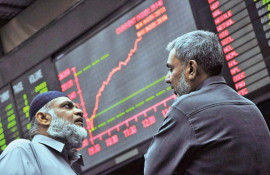
Now a little over two weeks since the referendum, some of the effects are materialising. My basic treatise with regards to events like Brexit is that they are disruptive to the general functioning of the market economy, they induce concentration of capital on which welfare of the many are contingent.
This realises when investors horde up capital into safer bets rather than endeavours that create employment and generate prosperity for all. Such behaviours on part of the investors, however, are not counterintuitive. Investors are risk-averse by nature.
Impact: 'Brexit will reduce remittance, exports'
Brexit has also produced patterns that can prove my view. Post-Brexit, as investors started dropping Euro and Pound, the demand for safer currencies like dollar and yen increased. Safe-haven investments in gold also surged as the precious metal gained value.
US dollar has appreciated by 20% and Yen has appreciated by 3.54%. What is perplexing here is that Japanese economy is still weak. Similarly, the demand for US government treasury bills increased as investors transferred their funds to safer financial assets backed by US government. Such transactions are more like stress-buying on part of the investors trying to hedge against risks.
We Pakistanis can also relate to this. In Pakistan, investors keep their capital in real estate market considering it a safer asset rather than risking it in the ailing business environment of the country. Interestingly, Pakistan has also witnessed Brexit-inspired stress buying.
In Pakistan’s case this kind of stress buying is evident from another kind of asset which is deemed best bet of them all - gold. The price of gold in Pakistan has been increasing ever since the date Britons voted out of EU. However, the Pakistan Stock Exchange has yet to recover all its losses although a minor gain was witnessed last week. Shares of textiles companies and auto-makers have been at the receiving end of UK’s referendum.
Brexit consequence: Ministry looks to mitigate damage
While these patterns may be a short run phenomenon, the over-riding lesson here still holds. Events like Brexit reduce business opportunities across the board and encourage concentration into un-productive side of the economy.
What global economy and countries like Pakistan need is un-restricted access to markets. While isolation may appear safe in the context of the global geopolitical situation, the economic effect can be disruptive enough to more than overcome any benefit associated with it in the long run.
The writer is a Research Associate at Policy Research Institute of Market Economy
Published in The Express Tribune, July 11th, 2016.
Like Business on Facebook, follow @TribuneBiz on Twitter to stay informed and join in the conversation.



1732263441-0/BeFunky-collage-(81)1732263441-0-165x106.webp)
1732263755-0/musk-(3)1732263755-0-165x106.webp)












COMMENTS
Comments are moderated and generally will be posted if they are on-topic and not abusive.
For more information, please see our Comments FAQ